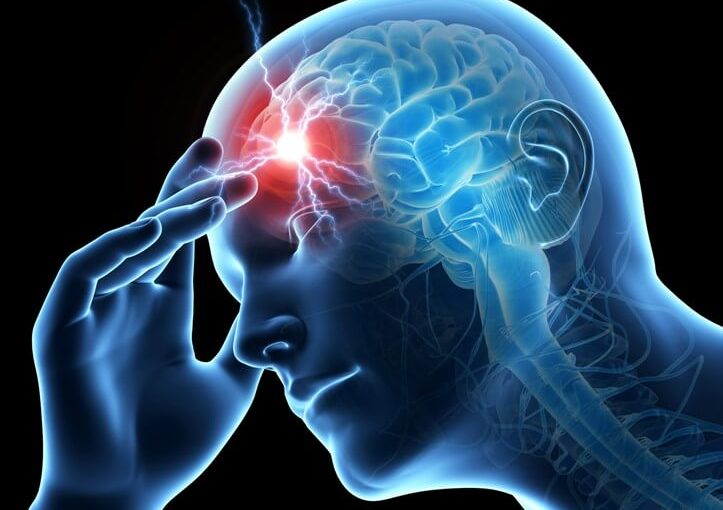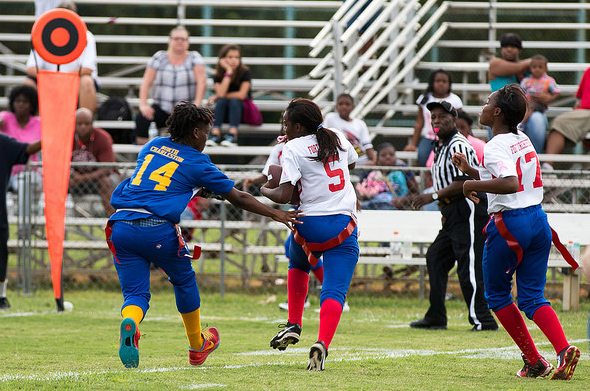Urine Protein Biomarkers Could Be Used To Diagnose Concussions
A concussion can be frustratingly hard to diagnose and track. The injury doesn’t show up on routine brain scans, and there is no definitive diagnostic test. It’s usually diagnosed based on symptoms, and, in athletes, comparison with baseline testing if it was done. But concussion symptoms are non-specific, unreliable, and easily influenced by emotions.“Athletes usually want to go back to their sport, so lots of times they say, ‘I feel great, doc,’ putting themselves at risk should they sustain a second brain injury,” says William Meehan, MD, a physician in the Division of Sports Medicine at Boston Children’s Hospital and director of The Micheli Center for Sports Injury Prevention. “But we’ve also had a lot of kids coming in worried, saying, ‘I’m not doing so well in school and I play soccer. Could it be a concussion?’ It would be great if a test could just tell us yes or no.”
 Rebekah Mannix, MD, MPH, in Boston Children’s Division of Emergency Medicine, says 40 to 60 percent of concussions are missed in the acute setting, where more visible injuries tend to get the attention. “Concussion can be very subtle. But there are lots of reasons to want to diagnose concussion acutely -; it can facilitate recovery, prevent kids from going back to sports too quickly, and avoid second-impact syndrome. We are always looking for objective markers of injury.”
Rebekah Mannix, MD, MPH, in Boston Children’s Division of Emergency Medicine, says 40 to 60 percent of concussions are missed in the acute setting, where more visible injuries tend to get the attention. “Concussion can be very subtle. But there are lots of reasons to want to diagnose concussion acutely -; it can facilitate recovery, prevent kids from going back to sports too quickly, and avoid second-impact syndrome. We are always looking for objective markers of injury.”
New research in the January 11 issue of Neurology could lead to just that: protein biomarkers in urine that could be used to diagnose concussion and monitor recovery.
They consented to athletes and collected and froze their urine samples according to protocols established in a lab. Athletes who sustained a concussion (diagnosed by a sports medicine physician) provided a repeat urine sample within seven days, and again one, three, six, and 12 months after injury.
“As concussions occur, we wait for those samples to come in,” says Cassandra Daisy of the Moses Lab, co-first author on the study with Howell and fellow Moses Lab member Speros Varinos. “Our population allows us to closely match athletes with and without concussion in terms of age and sex.”
Eventually, the team gathered enough samples to compare the urine profiles of 95 athletes: 48 who sustained concussions and 47 controls. To measure proteins, they used mass spectroscopy in collaboration with John Froehlich, Ph.D., and Richard Lee, MD, in Boston Children’s Department of Urology, as well as enzyme-linked immunosorbent assays (ELISAs).
Of 71 proteins that differed significantly between the two groups, two stood out as the most predictive of concussion: IGF-1 and the IGF-binding protein 5 (IGFBP5), both found at significantly lower levels post-concussion. They appear to be involved in brain injury repair, so the body may retain them after concussion rather than excrete them. Used together and added to gait evaluations, the proteins distinguished between athletes with and without concussion with high reliability.
While the other proteins found were less predictive, many were quite interesting scientifically and could help in understanding the biological effects of concussion.
“We were surprised by what we didn’t find,” adds Daisy. “Known markers of severe brain injury didn’t differ between the athletes with concussion and controls. Concussion appears to be very different.”







